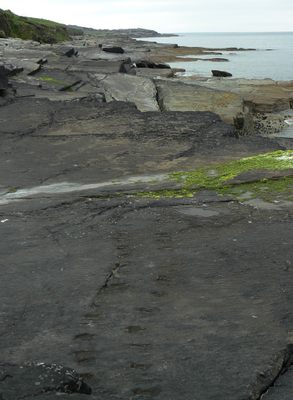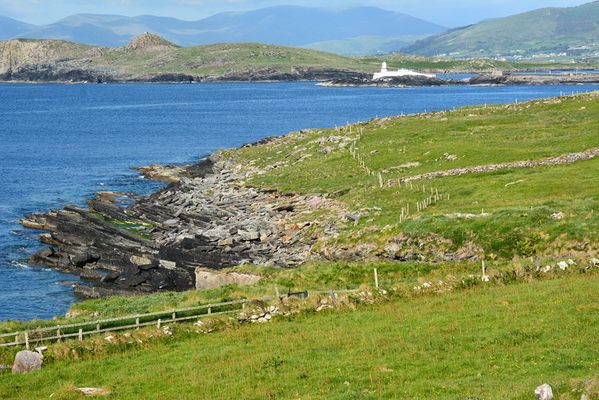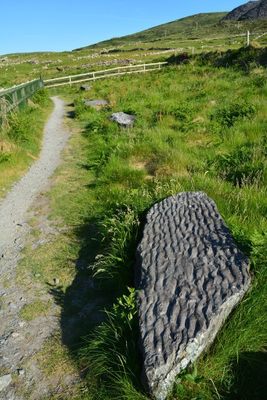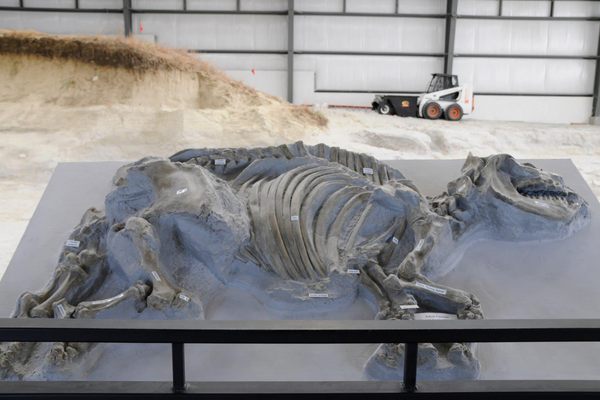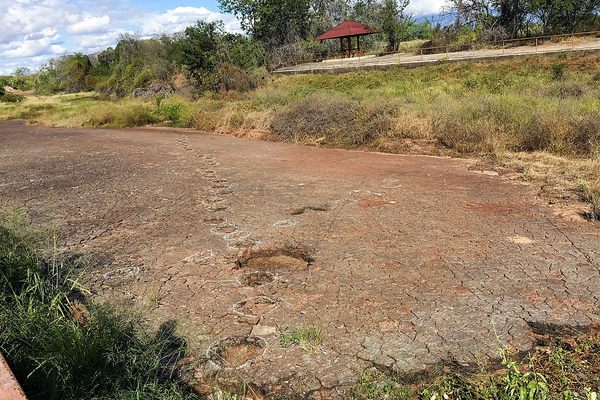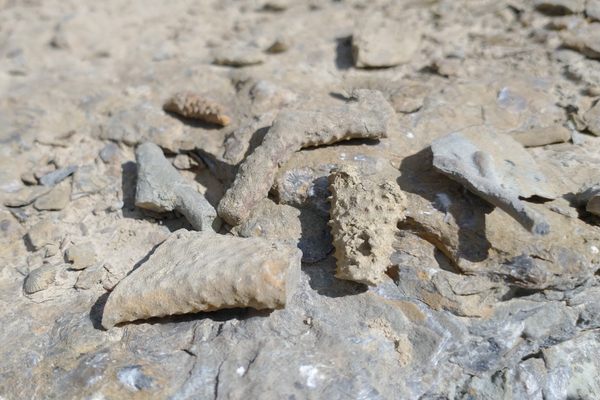About
About 385 million years ago, a primitive vertebrate walked through the muddy coastline of Ireland's Valentia Island, dragging its lizard-like tail behind it as it climbed ashore. Incredibly, the tracks it left behind were preserved and can still be seen today, a snapshot of one of the very first transitions of life from the sea to the land.
These prehistoric footprints were preserved by silt and turned to rock over the years, and today the petrified Tetrapod Trackway is among the oldest evidence in the world of four-legged vertebrates—animals with backbones—walking on land. These early amphibians, of course, eventually evolved into mammals, and ultimately into humans.
The Tetrapod Trackway on Valentia Island have been dated to the Devonian Period and are between 350 million and 370 million years old. It is one of four similar trackways currently existing in the world: There are others in Tarbet Ness, Scotland; Genoa River, NSW Australia; and Glen Isla, Victoria Australia.
Related Tags
Know Before You Go
The parking lot is located at N 51° 55.770 W 010° 20.749. The car ferry from Renard Point only operates from April to October. The path from the car park to the site is not handicapped accessible. Parts of it are steep and can be slippery in wet weather. The Trackway is free and is open year round. Follow the small signs reading Tetrapod trackway on Valentia Island. The prints are down a small road in the very north east corner of the Island, near the Grotto. Valentia Island is accessible via a ferry from Renard Point to Knightstown, or from a toll-free bridge from Portmagee. Paved, albeit narrow, twisting, and sometimes steep roads lead from both Knightstown and the Portmagee bridge to a small car park. Visitors can then walk down a quarter-mile path to the site. An information board provides historical information about the site and a short path with steps leads visitors to the shore where they can view the footprints.
Community Contributors
Added By
Published
August 30, 2016

